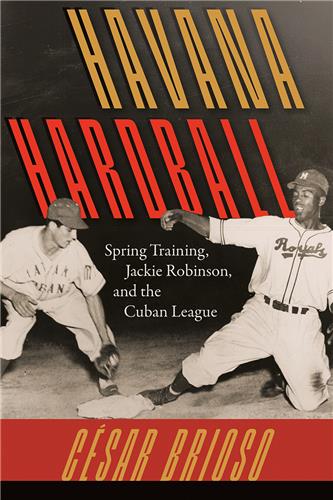This book recounts two stories of small-town injustice that rose to national prominence at the end of the Reagan era and forced a reckoning with the staying power of social division and prejudice.
Browse by Subject: African American History
Please note that while you may order forthcoming books at any time, they will not be available for shipment until shortly before publication date
Havana Hardball captures the excitement of baseball in 1947 Cuba, where the most memorable season in the history of the Cuban League coincided with Jackie Robinson's spring training on the island before he made his major-league debut with the Brooklyn Dodgers.
Analyzing works of film and literature by writers and artists from Beyoncé to Ntozake Shange, this book explores how Afro-Atlantic religion intersects with themes of resilience in Black femininity and womanhood.
Rich with the voices of Black and white southern workers, this broad collection of essays shows how African Americans have continued fighting for economic parity in the decades since the civil rights legislation of the 1960s.
This book explores the history and enduring legacy of Chambers v. Florida, a landmark ruling that banned confessions obtained through mental or physical coercion in criminal trials and contributed to what is now known as the “criminal procedure revolution.”
This collection examines the important work of Black men and women to shape, expand, and preserve a multiracial American democracy from the mid-twentieth century to the present.
This book uncovers and centers unexpected sites of Black Power activism within the Black freedom struggle. In essays interspersed with oral history interviews, leading scholars look at how we study the past and suggest new ways historians can recognize Black Power and Black radicalism in the future.
In two volumes, Judson Jeffries brings together essays on 21 accomplished and influential members of Omega Psi Phi Fraternity, Inc., demonstrating the enormous impact of the fraternity. Volume 1 tells the story of the organization’s founding and spotlights scientists, civil rights lawyers, athletes, and musicians.
In two volumes, Judson Jeffries brings together essays on 21 accomplished and influential members of Omega Psi Phi Fraternity, Inc., demonstrating the enormous impact of the fraternity. Volume 2 discusses military figures, artists, modern civil rights activists, and scholars, and celebrates the rise of recent scholarship on Black Greek-letter organizations.
Recovering critical, understudied writings from early archives, this book calls into question the idea that the Black prison intellectual movement began in the twentieth century, tracing the arc of Black prison writing from 1795 to 1901.











